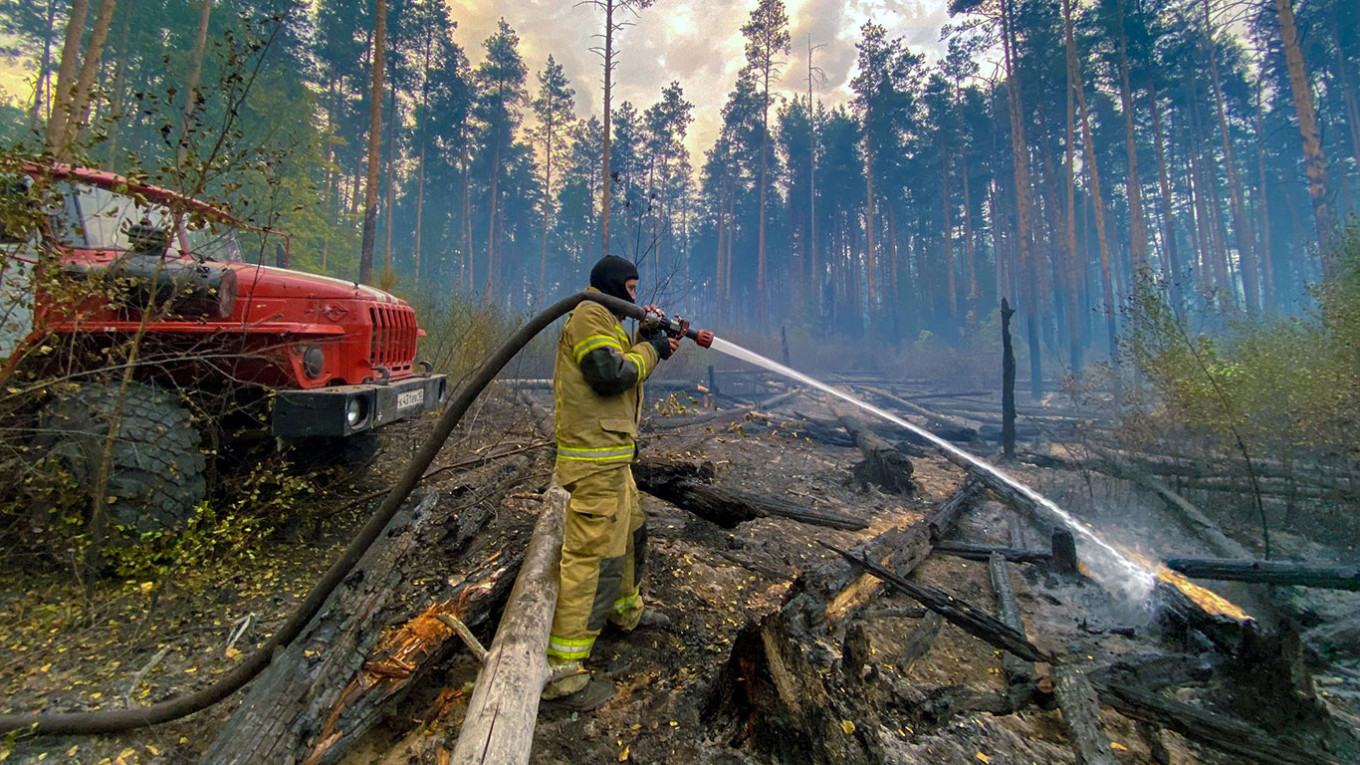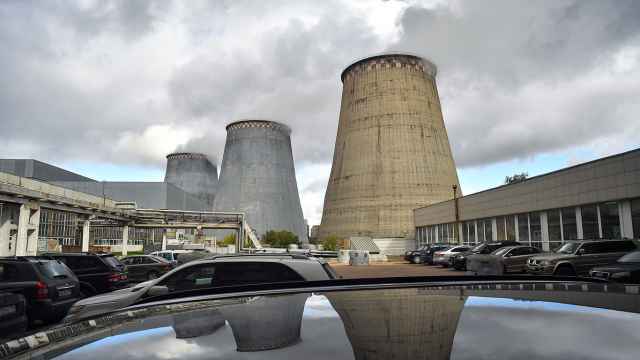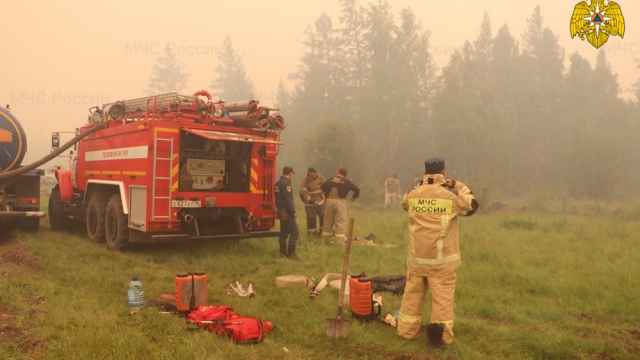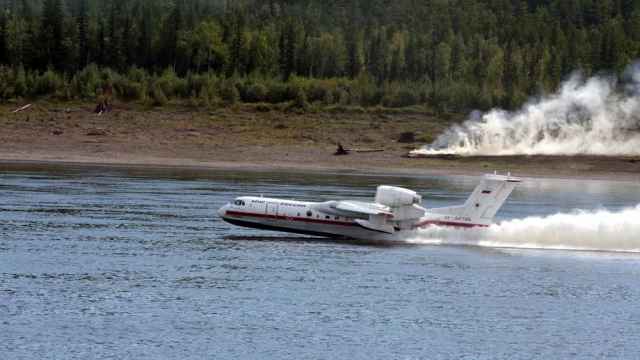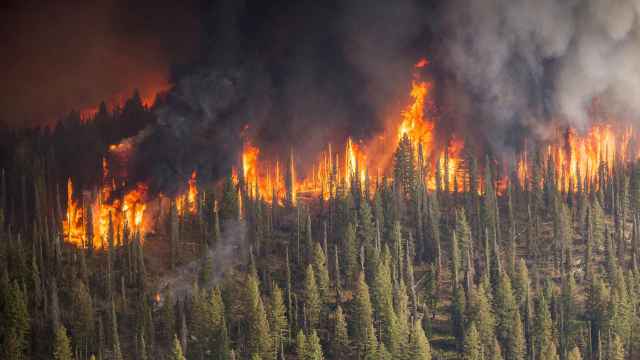Russia's central regions on Wednesday battled "extreme" wildfires fueled by an unusual heatwave that comes after forest fires linked to climate change ravaged Siberia for most of the summer.
Authorities were fighting 15 wildfires in the Urals region of Sverdlovsk, the emergencies ministry said.
The region — which lies on the border of Europe and Asia — faced "extreme fire hazard" due to a heatwave, it added.
Images on social media Tuesday showed flames on either side of a federal highway between regional capital Yekaterinburg and the Urals city of Perm, forcing the road shut for most of the day, according to reports.
Fires had meanwhile grown so intense in Mordovia, a region southeast of Moscow, that firefighters were forced to escape from a "ring of fire," the ministry said Wednesday.
And in the Nizhny Novgorod region east of Moscow, nine planes provided by the emergencies ministry, the defense ministry and the Russian National Guard had dropped 129 tons of water onto a large wildfire spreading to neighboring Mordovia.
Authorities had deployed 1,200 firefighters to put out the blaze, the emergencies ministry said.
President Vladimir Putin on Tuesday pledged hundreds of millions of dollars to protect the country's forests, saying the nation must learn from the "unprecedented" wildfires that engulfed swathes of Siberia.
In the country's largest and coldest region of Yakutia, fires have burned through an area larger than Portugal.
The emergencies ministry said Wednesday that there were 50 forest fires now burning in the region.
Officials in hard-hit regions have called for resources and economic support from Moscow to deal with the damage.
Experts blame the huge fires that have ripped across Russia's vast territory in recent years on climate change, negligence, and underfunded forestry management services.
Russia's forestry agency says fires this year have torn through more than 173,000 square kilometers, making it the second-worst season since the turn of the century.
A former skeptic of manmade climate change, Putin has called on authorities to do everything possible to help Russians affected by the gigantic fires.
A Message from The Moscow Times:
Dear readers,
We are facing unprecedented challenges. Russia's Prosecutor General's Office has designated The Moscow Times as an "undesirable" organization, criminalizing our work and putting our staff at risk of prosecution. This follows our earlier unjust labeling as a "foreign agent."
These actions are direct attempts to silence independent journalism in Russia. The authorities claim our work "discredits the decisions of the Russian leadership." We see things differently: we strive to provide accurate, unbiased reporting on Russia.
We, the journalists of The Moscow Times, refuse to be silenced. But to continue our work, we need your help.
Your support, no matter how small, makes a world of difference. If you can, please support us monthly starting from just $2. It's quick to set up, and every contribution makes a significant impact.
By supporting The Moscow Times, you're defending open, independent journalism in the face of repression. Thank you for standing with us.
Remind me later.


